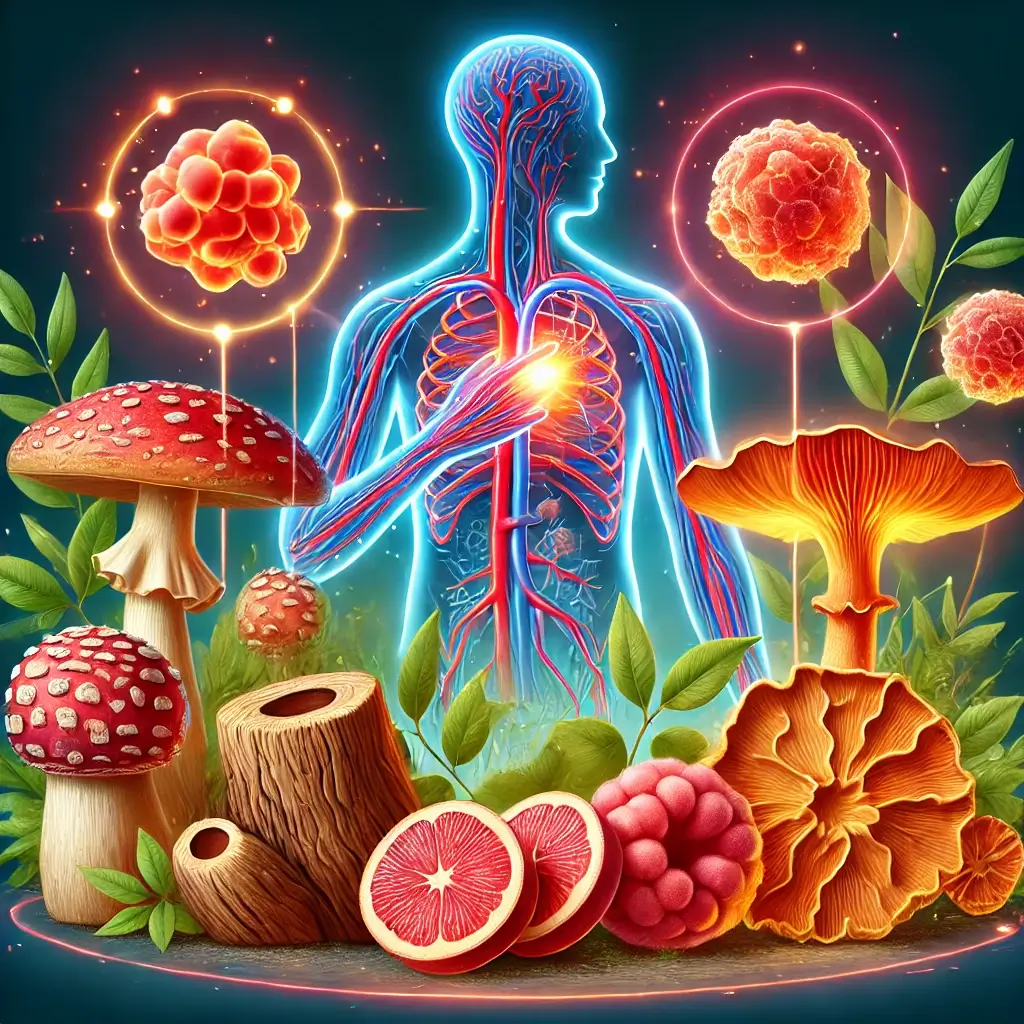Understanding the Defensive Role of Inflammation in Our Bodies
Chronic inflammation is caused by the immune system being active for a longer length of time, which can contribute to the development of chronic illnesses. Inflammation is a necessary defensive process that assists the body in fighting infections and injuries.
The Dangerous Side of Prolonged Inflammatory Responses
Chronic inflammation, on the other hand, can cause damage to healthy tissues and organs, leading to a variety of disorders such as heart disease, diabetes, arthritis, and cancer.
How Inflammation Affects Your Cardiovascular System
Chronic inflammation can cause chronic illnesses by harming the blood vessels in the body. Chronic inflammation produces inflammation of the blood vessels, which can contribute to the development of atherosclerosis, a disease in which the arteries become blocked with plaque. This can raise the risk of cardiovascular disease and stroke.
The Connection Between Inflammation and Diabetes
Chronic inflammation can also contribute to insulin resistance, a disease in which the cells of the body grow resistant to the actions of insulin. High blood sugar levels and the development of type 2 diabetes can result from this.
Impact on Insulin Production and Pancreatic Health
Inflammation can also harm the pancreatic cells that make insulin, worsening the development of diabetes.
The Cancer-Inflammation Connection
Chronic inflammation, in addition to these disorders, can contribute to the development of cancer. Chronic inflammation can induce DNA damage and mutations, which can contribute to cancer cell formation. Inflammation can also encourage cancer cell development and spread by establishing an environment favorable to their growth.
Addressing the Root Cause of Many Modern Diseases
Chronic inflammation is a major risk factor for the development of chronic illnesses. We can create better methods for avoiding and treating these illnesses if we understand the pathways by which chronic inflammation leads to disease.
Lifestyle Approaches to Reduce Inflammatory Risk
Diet and exercise, as well as anti-inflammatory drugs, can help minimize the risk of chronic illnesses associated with chronic inflammation.
Natural Support from Nature’s Pharmacy
Medicinal mushrooms can help you respond to inflammation in a healthy way. Inflammation is a complicated biological process that aids in the body’s defense against infection and damage. Chronic inflammation, on the other hand, can lead to a variety of chronic disorders, including cancer, heart disease, and Alzheimer’s disease.
The Powerful Compounds in Medicinal Fungi
Medicinal mushrooms include a number of chemicals that can aid in the reduction of inflammation and the promotion of a healthy inflammatory response. Among these substances are:
Beta-glucans: The Inflammation Fighters
Beta-glucans are a form of carbohydrate that has been demonstrated to lessen inflammation by reducing inflammatory cytokine production.
Polysaccharides: Boosting Your Immune Defense
Polysaccharides are another carbohydrate that has been found to lower inflammation by stimulating macrophages, which are cells that ingest and kill foreign invaders.
The Anti-inflammatory Power of Triterpenes
Triterpenes are plant compounds that have been demonstrated to have anti-inflammatory and antiviral effects.
Hericenones: Nerve Growth and Protection
Hericenones are a kind of substance found in lion’s mane mushrooms that has been demonstrated to decrease inflammation and increase nerve cell proliferation.
Top Medicinal Mushrooms for Fighting Inflammation
Some of the most well-known therapeutic mushrooms for inflammation are:
Reishi: The Stress-Reducing Adaptogen
Reishi mushrooms are recognized for their adaptogenic characteristics, which means they can assist the body deal with stress. Reishi mushrooms have also been demonstrated to alleviate inflammation and strengthen the immune system.
Chaga: Antioxidant Powerhouse for Heart Health
Chaga mushrooms are well-known for their strong antioxidant content. Chaga mushrooms have also been demonstrated to promote cardiovascular health and decrease inflammation.
Lion’s Mane: Brain-Boosting Inflammation Fighter
Lion’s mane mushrooms are well-known for their potential to boost cognitive function and increase memory. Lion’s mane mushrooms have also been found to decrease inflammation and stimulate nerve cell proliferation.
Shiitake: Delicious Flavor with Immune Benefits
Shiitake mushrooms are well-known for their earthy taste and umami richness. Shiitake mushrooms have also been demonstrated to alleviate inflammation and strengthen the immune system.
How to Incorporate Medicinal Mushrooms Into Your Routine
Capsules, powders, teas, and extracts are some of the ways medicinal mushrooms can be eaten. They can also be mixed into meals and beverages.
Important Medical Considerations Before Use
It is essential to consult with your doctor before using medicinal mushrooms for inflammation. Because medicinal mushrooms might interact with certain drugs, it is critical to be informed of the dangers and advantages before using them.
A Complementary Approach to Inflammation Management
It’s also worth noting that medicinal mushrooms aren’t a panacea for inflammation. If you have inflammation, you should consult a doctor to establish the underlying cause of inflammation and receive proper therapy.
References
- Guggenheim, A. G., Wright, K. M., & Zwickey, H. L. (2014). Immune Modulation From Five Major Mushrooms: Application to Integrative Oncology. Integrative Medicine: A Clinician’s Journal, 13(1), 32–44.
- Wasser, S. P. (2014). Medicinal mushroom science: Current perspectives, advances, evidences, and challenges. Biomedical Journal, 37(6), 345-356.
- Elsayed, E. A., El Enshasy, H., Wadaan, M. A., & Aziz, R. (2014). Mushrooms: a potential natural source of anti-inflammatory compounds for medical applications. Mediators of inflammation, 2014, 805841.
- Muszyńska, B., Grzywacz-Kisielewska, A., Kała, K., & Gdula-Argasińska, J. (2018). Anti-inflammatory properties of edible mushrooms: A review. Food Chemistry, 243, 373-381.
